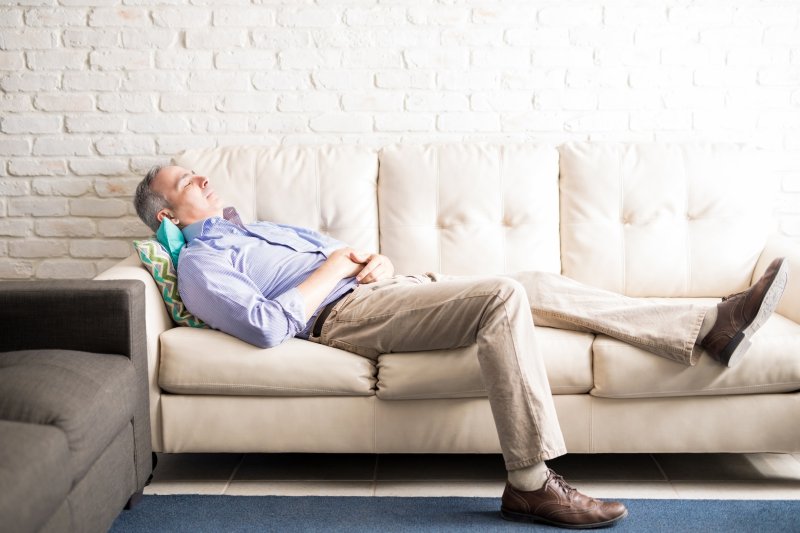
When you’re feeling exhausted during the day, the natural thing to want to do is take a nap. On the surface, this may seem like a good way to get your energy back so that you can go about the rest of your day feeling more refreshed. However, studies have shown that napping can have its drawbacks, and that’s especially true for anyone who is already suffering from a sleep disorder. Below, you can learn more about why napping and sleep apnea may not be the best combination.
The Truth Behind Napping
Napping is often seen as a way to “make up” for the sleep you missed the previous night. From a biological standpoint, though, this doesn’t actually work. For one thing, your body always starts at the beginning of the sleep cycle no matter how tired you are. Thus, even if you sleep for an hour, your body likely won’t spend enough time in the restorative stages of sleep to truly make up for what was lost the previous night.
You also need to be wary of how napping is affecting your sleep schedule. Getting some extra sleep during the day can make it harder to fall asleep at night. In many cases, it’s actually better to go through the rest of the day feeling tired because that way it’ll be easier to get the eight straight hours of sleep you need at night.
Napping and Sleep Apnea
If you have been diagnosed with sleep apnea, then napping without CPAP or an oral appliance will definitely do more harm than good; the interruptions in breathing will be harmful to your body, and they will keep forcing you awake and prevent you from actually enjoying the benefits of sleep. Also, if you’re still adjusting to your sleep apnea treatment, then it’s actually better to be as tired as possible when you go to bed so that it’s easier to fall asleep with the equipment or appliance. As such, you’ll likely want to avoid napping around the beginning of your sleep apnea treatment.
So Should You Avoid Napping?
As a rule, people with sleep apnea should try to avoid napping whenever possible, especially if one of the side effects of your sleep disorder is insomnia. If you absolutely must nap, it’s essential to have your CPAP or oral appliance on hand while you do so.
You’ll want to talk to your sleep dentist or your general physician about your sleeping habits when you begin sleep apnea treatment. If you enjoy a mid-afternoon nap, then it’s important to be aware of the impact it could have on your sleep apnea symptoms and your ability to get the rest you need at night.
About the Author
Dr. Mitch Conditt is proud to specialize in sleep dentistry and help his patients overcome sleep apnea – a disorder that he himself was diagnosed with in 2009. He knows firsthand the difference an oral appliance can make, and thanks to his professional training he can provide a lot of insight on how napping and other lifestyle choices can impact the overall quality of the sleep you get. To schedule a sleep consultation, visit his website or call (817) 527-8500.
